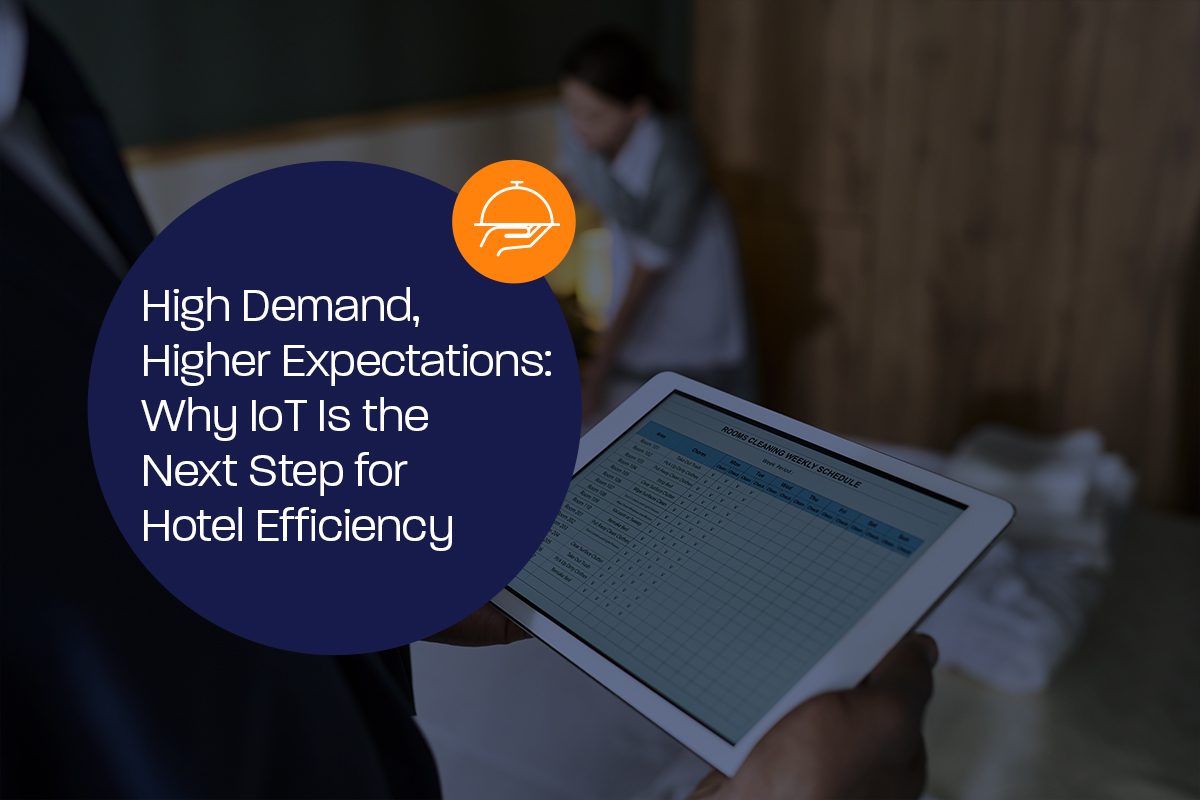Hotel demand remains strong, even as economic pressures reshape traveler behavior. According to a new survey by the American Hotel & Lodging Association (AHLA) and Morning Consult, half of U.S. adults plan to take an overnight leisure trip before the end of the year, and nearly one-third of employed adults plan to travel overnight for business.
While hotels remain the top lodging choice for leisure (44%) and business (63%) travelers, cost pressures are leading to the slight decline in travel intention year over year. Nearly half of U.S. adults (45%) cite higher expenses as the main reason for traveling less this year, and 49% say inflation may reduce their travel in the coming months.
For hotel operators, this signals steady demand but more cost-conscious guests. As a result, to stay profitable and maintain guest satisfaction, hoteliers must be leaner, smarter, and more proactive with their operations.
How IoT Moves the Needle for Hotel Operations
Operational excellence begins behind the scenes. According to various independent reports, using Internet of Things (IoT) technology can help hotels:
- Optimize energy and water use (smart HVAC, water systems) to enable potential energy and water cost savings.
- Enhance guest experiences from the moment they check in (e.g. ideal humidity levels in guest rooms), with automated services that help increase operational efficiency and boost guest satisfaction.
- Automate routine tasks to free up staff, which can help increase productivity and reduce time spent on repetitive, low-value tasks.
- Monitor equipment health proactively to enable reductions in both equipment downtime and maintenance costs.
- Elevate cleanliness and facility wellness, which are top guest satisfaction drivers, according to a recent J.D. Power survey.
Strategic Considerations for Connected Operations
IoT’s value comes from connected systems fundamentally reshaping how hotel operations are managed. Leaders should focus on:
- Data-driven decision-making: Turn sensor data into actionable insights to help manage energy spend, support sustainability goals, or optimize workflows.
- Proactive problem-solving: Anticipate issues before they affect guests or staff—from early water leak detection to pest control.
- Guest-centric automation: Deliver consistently high-quality guest experiences by using IoT technology to personalize stays and improve service responsiveness, all while reducing manual effort.
- Empowered workforce: Provide teams with real-time alerts and smart data summaries to act on insights immediately, improving responsiveness during high-occupancy periods, and enable discrete staff safety alert devices for an added sense of support.
- Future-ready infrastructure: Invest in scalable, secure platforms that provide a foundation for future innovation while safeguarding guest data and network reliability.
By aligning connected operations with business strategy, hoteliers can build agile, data-driven organizations while keeping guests at the center of every decision.
Smarter Operations, Happier Guests
As travelers continue to choose hotels, operators who invest in operational efficiency and connected technologies will be best positioned to meet guests’ rising expectations and weather economic uncertainty.







